For contractors and construction firms working on urban road projects in Indonesia—especially in cities like Jakarta and Surabaya—choosing the right asphalt mixing plant can directly impact your project’s speed, cost, and quality. If your daily paving target is around 500–800 meters, your equipment must match that rhythm without causing delays or material shortages.
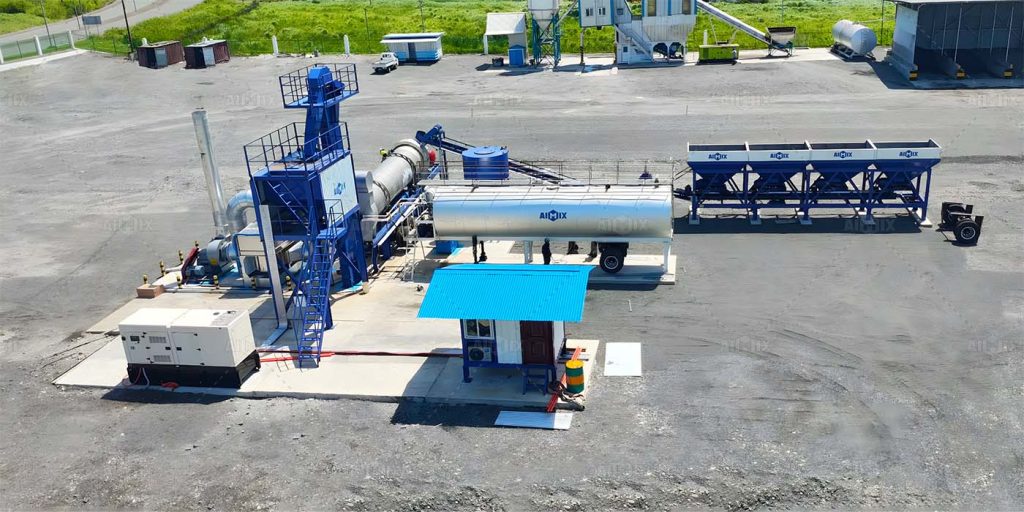
Understanding Daily Paving Needs for Urban Road Projects
Urban road construction in dense cities like Jakarta and Surabaya is not just about producing asphalt quickly. It requires consistency, mobility, and synchronization with paving equipment. On average, paving 1 meter of a 7-meter-wide road with a 5 cm thick asphalt layer consumes around 0.28–0.32 tons of hot mix asphalt. This means:
- 500 meters/day ≈ 140–160 tons of asphalt per day
- 800 meters/day ≈ 220–260 tons of asphalt per day
With this calculation, it becomes clear that you need an asphalt plant capable of producing at least 160–260 tons per day to stay on track. But raw production capacity is just one side of the equation.
Why a 40–80 TPH Asphalt Mixing Plant Is Ideal
Given the daily output target, an aspal mixing plant mini with a capacity of 40–80 tons per hour offers the perfect balance. Here’s why:
1. Fits Urban Project Schedules
With 4–5 hours of operation per day, a 40–80 TPH plant can meet your paving target comfortably. It avoids overproduction and reduces energy waste compared to oversized plants.
2. Minimizes Installation and Transport Challenges
Smaller and medium-sized plants—especially mobile types—are easier to transport and install in tight urban spaces. For Jakarta’s and Surabaya’s congested zones, this is a major benefit.
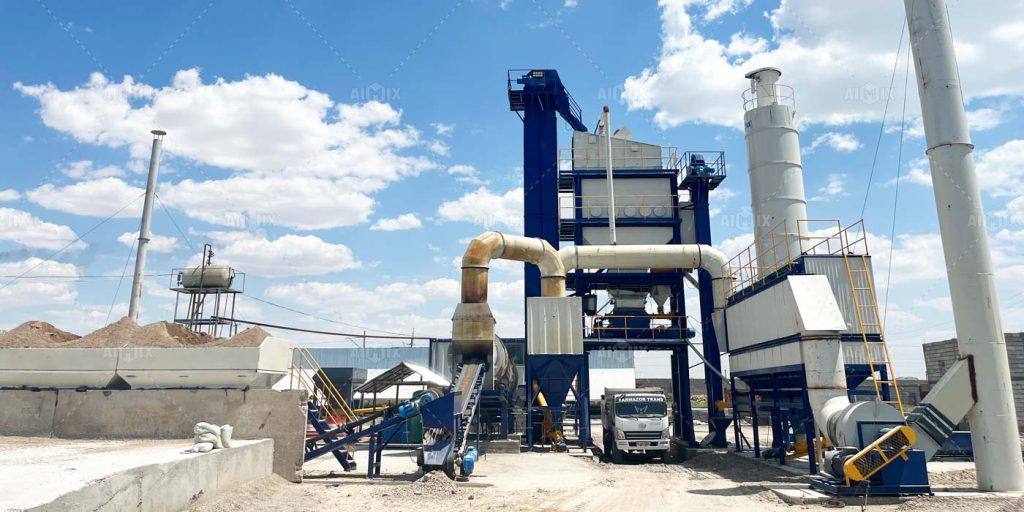
3. Syncs Well with Paver Machine Speeds
Asphalt paving machinery can typically operate at 3–5 meters per minute in urban conditions. An 80 TPH plant produces enough hot mix to maintain uninterrupted paving without forcing downtime or waste accumulation.
In short, a 40–80 TPH capacity asphalt plant ensures smoother coordination between production and paving on urban job sites.
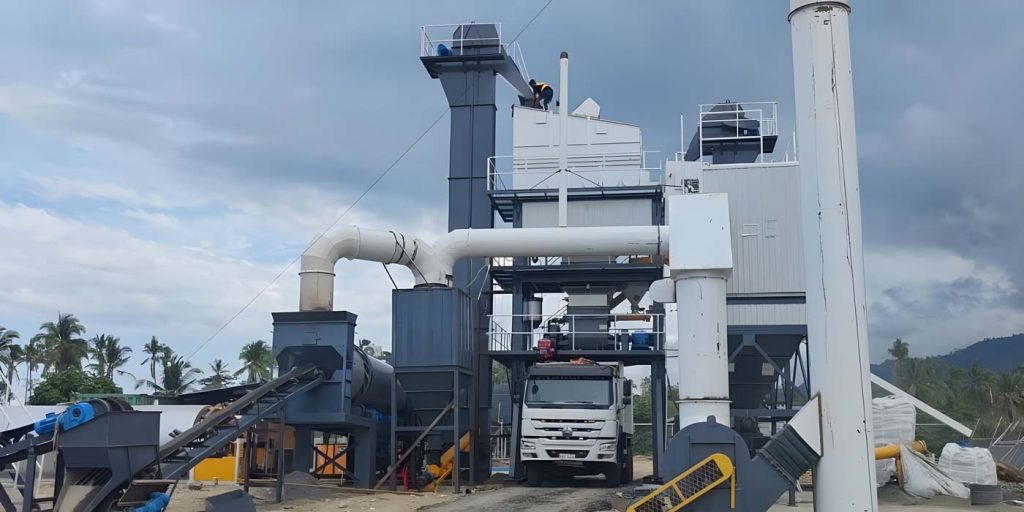
Stationary vs. Mobile: Which One Suits Urban Roads Better?
Once you’ve narrowed the capacity range, the next question is plant type. Should you choose a stationary or mobile plant for urban road projects?
Mobile Asphalt Plants: Flexible and Fast
Mobile drum mix or batch mix plants are excellent for contractors who move from site to site frequently. The mobile asphalt plant can require minimal foundation work and can be assembled in as little as 7–10 days. This agility saves time and lowers installation costs—two key advantages in urban projects with tight schedules.
Stationary Asphalt Plants: Better for Long-Term Projects
If you’re working on a long-term road rehabilitation project within one city sector, a stationary asphalt plant with a fixed foundation may provide better durability and lower operating costs over time. However, space availability is crucial.
Therefore, for projects in Jakarta and Surabaya that involve daily relocation or work in limited spaces, a mobile 60–80 TPH asphalt plant is usually the smarter choice.
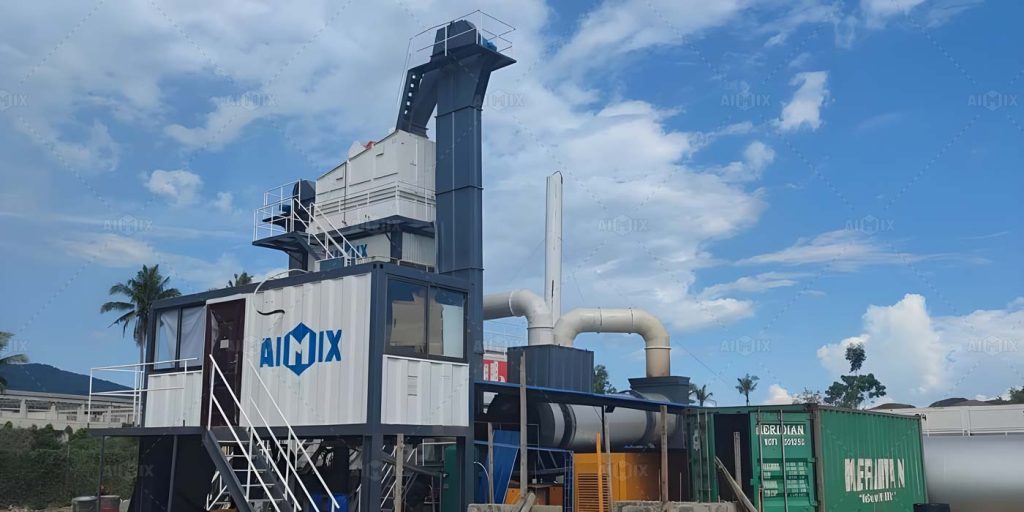
What Features Should You Prioritize?
Aside from capacity and mobility, urban asphalt projects require reliability and ease of operation. Look for asphalt plants with:
- Automatic PLC control for stable production
- High-efficiency drying system for consistent output
- Energy-saving burners to reduce operating costs
- Dust collection systems to meet environmental standards
These features ensure you meet both technical and regulatory standards without sacrificing output or efficiency.
Case Example: Jakarta Inner-Ring Road Upgrading
In a recent Jakarta inner-ring rehabilitation project, the contractor used a 60 TPH mobile drum mix plant. The plant operated for 5 hours per day, producing 300 tons of asphalt mix across two shifts. The compact layout and quick setup helped avoid project delays, while the easy relocation feature allowed the contractor to move the plant between zones seamlessly. The result? On-time delivery and smooth project handover.
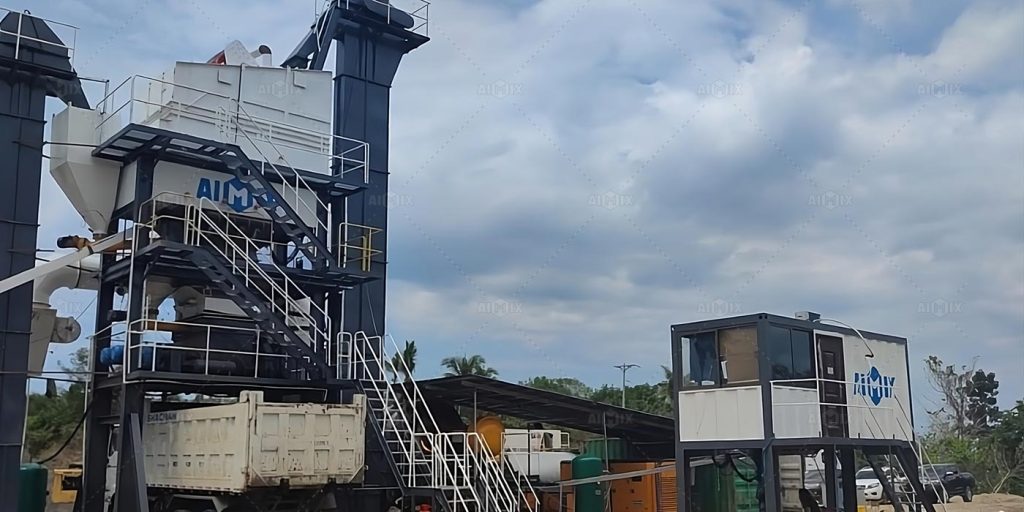
Conclusion: Match Plant Capacity to Project Reality
Choosing the right asphalt plant for 500–800 meters of daily paving requires balancing capacity, mobility, and reliability. A mobile aspal mixing plant in the 60–80 TPH range often hits the sweet spot for urban jobs in Jakarta and Surabaya. It offers sufficient daily output, is easy to set up, and supports flexible site operations.
Looking for a Reliable Asphalt Plant for Your Urban Projects?
At AIMIX Indonesia, we specialize in asphalt mixing solutions tailored for urban projects like yours. Our mobile asphalt plants range from 20–120 TPH and come with intelligent control systems, fast setup, and on-site support. With warehouses and local engineers in Indonesia, we’re ready to help you start faster and pave smarter.
Contact us today to get a quote or site recommendation that fits your project goals.